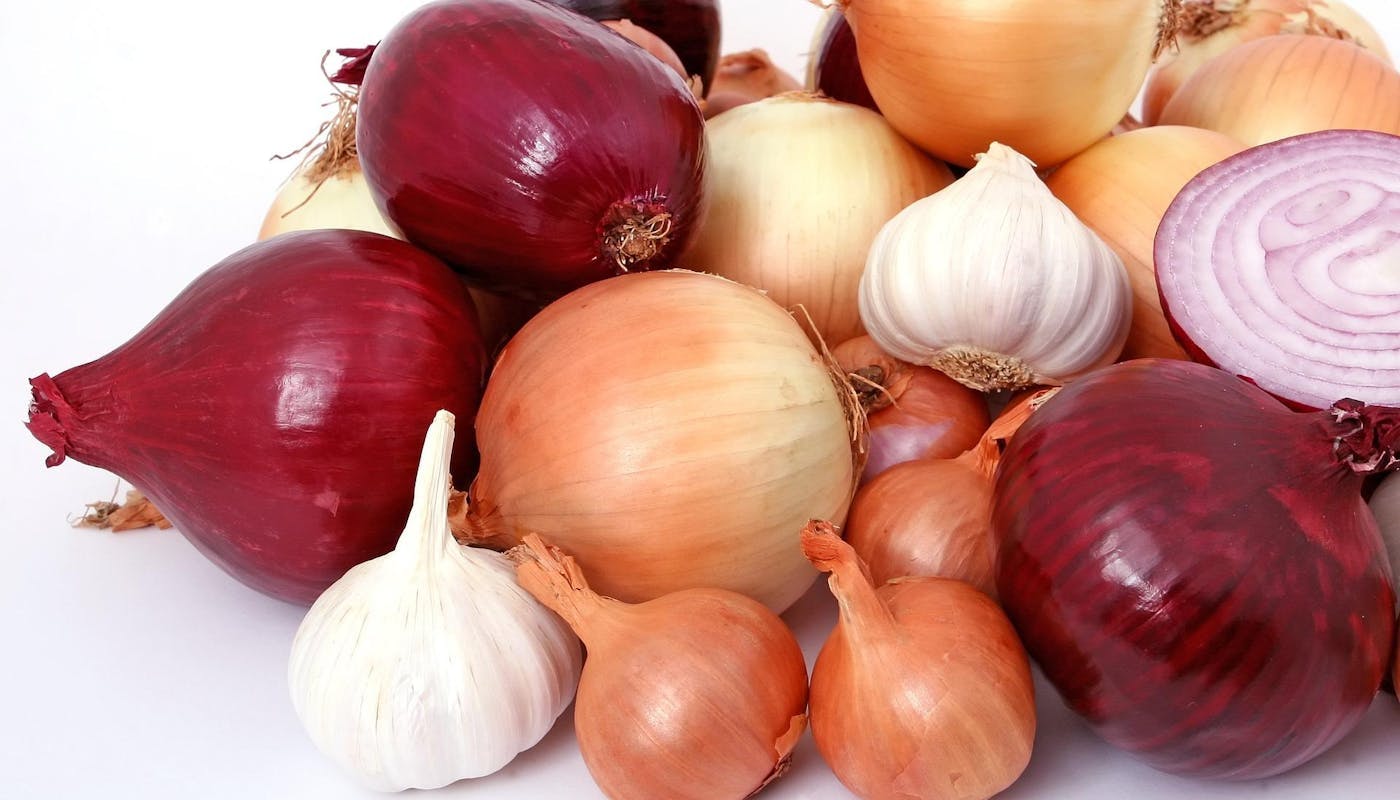Can My Dog Eat Onions?
Can My Dog Eat Onions?
It can be tempting to let your dog hoover up the crumbs that fall to the floor as you’re cooking, or to scrape the leftovers from your dinner into their bowl to enjoy. But many owners may not realize the hazards that a healthy human meal can present to their pets.
Onions are one of the most popular foods used in human cooking but can be lethal to dogs, a member of the allium family that is highly toxic to dogs. So while we aim to get more and more vegetables onto our own plates, there are some that won’t do our dogs the same level of good.
So if you’ve ever wondered, can dogs eat onions? The answer is no! This isn’t a no, it’s not good for them, it’s a no, it’s flat out poisonous.
Why Are Onions Bad For Dogs?
Onions contain N-propyl disulfide, a toxic principle that can cause anemia in dogs. This is because it causes oxidative damage from oxygen attaching to the molecules in the blood cells, and therefore causing them to break down.
When the red blood cells can’t carry oxygen, the body thinks it's being invaded and attacks its own blood cells, destroying them in a process known as hemolysis. This results in hemolytic anemia which can be fatal if left untreated.
What Do I Do If My Dog Eats Onion?
If you believe your dog has eaten any amount of onion, you should seek veterinary advice. The chances are that a tiny amount licked up from the floor while you’re chopping will do them little harm. But larger amounts – especially if they get to your plate while your back is turned – could cause issues.
These are the symptoms of anemia that dog owners should look out for if they think their dog has eaten onion:
- Tiredness and lethargy
- Decreased appetite
- Weakness
- Fainting
- Red tint to the urine
- Pale gums
- Vomiting
- Panting
- Elevated heart rate
If your dog displays any of these symptoms after eating onions, take them to the vet. A medical professional will check the symptoms and likely run blood tests to check for hemolytic anemia.
How To Treat Onion Toxicity In Dogs
The first step to treating – or rather avoiding – onion toxicity is to take all measures necessary to make sure your dog never eats onion. The best way to do this is to ban feeding table scraps, make sure your dog is never left unattended around human food, and never allow them to eat leftovers if you know there was onion in the dish.
However, if your pup does manage to snaffle some onion and is displaying symptoms of toxicity, a vet should be able to treat the illness. Though onion toxicity can lead to death if left untreated, a vet is likely to induce vomiting or other supportive care to help your dog until they’re producing enough healthy red blood cells. In serious cases, this can require blood transfusions.
Is The Whole Onion Toxic To Dogs?
Every part of an onion is toxic to dogs. As well as the flesh we eat at home, the leaves, juices, and even processed onion powders can lead to onion toxicity in dogs. Garlic, leeks, chives, and shallots – also members of the allium family – have the same effects.
One reason to avoid feeding your dog human food is that onion – and lots of other foods we eat – are processed, fried, and otherwise cooked in unhealthy ways that are high in fat. This leads to separate health issues on top of poisoning from the onions.
Another is because many human foods contain onion powder – and you might not even realize. Soups, baby foods, and other packed foods may use onion powder as a flavoring even if onion isn’t a main ingredient. And since onion powder is even more toxic – since it's more concentrated – it can have devastating effects on canine bodies.
How Much Onion Is Poisonous To Dogs?
Any amount of onion should be avoided. However, a general rule is that toxic effects are caused by as little as 100g of onion per 20kg of a dog’s bodyweight. So a medium-sized dog would only have to eat one onion to suffer from dangerous levels of toxicity.
